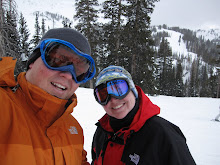So I had a great time in St. George playing tennis and just relaxing. My husband was great about watching her and my parents helped out too. One of our team members (now a friend I hope) has an amazing home there and ten of us stayed at her house. It was really nice to be able to read, take long showers and be a little girly. Although I was the youngest, I still had a great time talking and playing tennis with the ladies. On the way home we started talking about religion. We started talking about how I had left the Mormon church when I was younger and how one of the ladies had also left, but changed religions. She (lets call her Sara -- changing the name just in case) had become a Baptist, was a missionary for many years and has a Masters degree in Theology. Since I am always curious about other people's beliefs, especially people who leave Mormonism, I asked Sara some questions about what she believed. There were several practicing Mormons in the car, and we had a great discussion. I learned alot about what other Christians believe and how it differs from the mormon ideas.
But why is it so hard to have these type of discussions and not hurt people's feelings? I avoid talking about it with friends and family, but I find it very interesting. The key is being open minded and actually listening. The problem I have with most people is that faith is kind of a taboo (or it's a circular argument - it's true because I believe it and I believe it because it is true) so if the topic turns to faith, and by religion's nature it has to in the end, there is no way to discuss it without feelings getting hurt. So, if you are reading this please know, I'm not trying to hurt any one's feelings, this is just what I think.
When I say that I don't believe in anything, I mean that I don't believe in anything that has no scientific proof to back it. Science does change, and I'd like to think I review the evidence for myself and use my reasoning mind to discover new things about the world. I was asked in our discussion what the difference was between "believing in science" and "believing in God." My answer was that science can change with new evidence, but I should have added several other things. Mormons' response has been that they also change their beliefs with new "revelation" from their prophet. (I think it's a bit ironic that an omnipotent being has new revelations, but that's a separate issue). I struggled to express the difference, but I think I've got it now-- any person can start from the beginning of science and come up with the same answers using experimentation and their own collected evidence, because science was not "revealed" by one prophet or even 12. Many people over generation of time have built upon the knowledge and evidence of the previous generations.
I think it is also interesting that after the civil rights movement the Mormon church had a revelation to allow black men to have the priesthood. How omnipotent was that? It wasn't all knowing, it wasn't even forward thinking. It seems silly to me that "God or any higher power" would suddenly change the rules just as it was becoming politically incorrect not to change them. The work of men, not God, seems pretty clearly at hand in that case.
I may not have all of the exact details about Mormon revelation, but generally I don't see how someone can go through years of collegiate science, math and logic classes and still have any semblance of faith. By definition, they are a contradiction in terms.
There are several other sources that are better than I, such as The God Delusion by Richard Dawkins and The Virtue of Selfishness by Ayn Rand. I wish I remembered all of the great things I have read and could spell them out as well as these books do, but alas, I'm not a great writer --- but I can blog right along with all of the other millions of bloggers spouting off into the great abyss of the Internet.
Goodnight and Sweet Dreams,
KD
Subscribe to:
Post Comments (Atom)

No comments:
Post a Comment